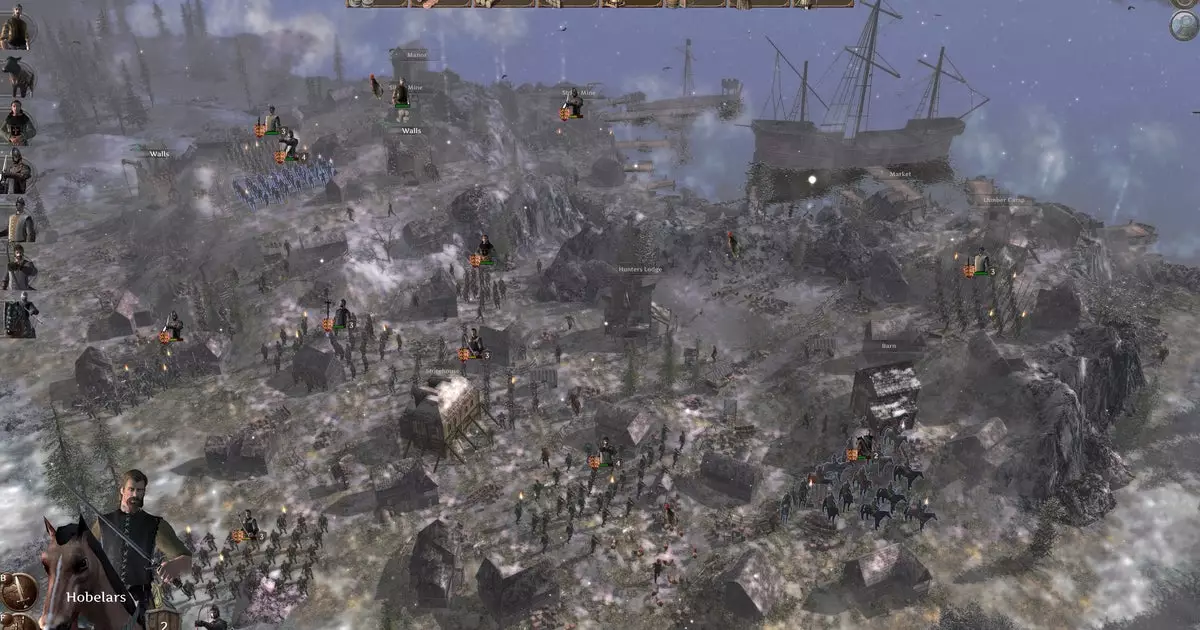The Crusades remain one of the most contentious chapters in the annals of history, enduring as a robust subject of inquiry for both academics and enthusiasts alike. These medieval military campaigns were instigated primarily by the Latin Christian Church and aimed at reclaiming the Holy Land from Muslim rule. The first wave was notably triggered by the Rashidun Caliphate’s acquisition of Jerusalem. However, far from just a religious conflict, the Crusades were emblematic of complex socio-political dynamics of the era, melding faith, politics, and culture into a crucible of violence and zealotry. This interweaving of narratives illustrates how history often gets repackaged and repurposed. In contemporary discussions, references to the Crusades have increasingly morphed into memes, sometimes misconstrued by fringe political movements attempting to co-opt the fervor for their agendas.
The Rise of Gaming as a Historical Lens
In recent years, video games have risen as an unconventional yet powerful medium for re-examining historical events. Interactive games such as “Knights Of The Crusades” offer a unique entry point into this tumultuous timeframe. Released in early access, this grand strategy 4X game invites players to delve into the tension-filled atmosphere of the First Crusade and its aftermath. By framing gameplay within a historically rich context, developers provide players an opportunity to experiment with decision-making and strategy in ways traditional media seldom allow. The game’s mechanics invite users to not only battle for control over cities but also to navigate the complexities of shifting alliances, creating a dynamic world shaped by player choices.
However, this immersive experience comes with inherent challenges, particularly regarding the sensitivity and accuracy of the historical portrayal. “Knights Of The Crusades” seems to tread a fine line between gamification and the grim realities of its historical backdrop. Encounters such as raiding villages are presented, risking the potential glorification of violence and insensitivity toward the historical suffering endured by the players involved. It raises the question: can a game that depicts such a brutal period accurately reflect its complexities or will it merely serve as a platform for romanticized narratives?
The Balance Between Education and Entertainment
A pertinent debate surrounding titles like “Knights Of The Crusades” is whether the education that comes from engaging with historical content outweighs the risks of misrepresentation or trivialization. The promotional material for the game hints at an intention to embrace the textured nature of its historical subjects, promising unique cultural representations and mechanics for various factions. From the perspective of a player, the call to engage with the multifaceted identities of Christianity, Islam, and Paganism within the game appears ambitious, yet fraught with the peril of oversimplification.
Moreover, the potential for a deep and thoughtful exploration of cultural nuance raises concerns about who gets to narrate this history. As observers and participants in this interactive narrative, we must remain critical of the symbiotic relationship between gaming and history. As “Knights Of The Crusades” evolves through its early access phase, the challenge will be to ensure each faction is presented with depth and authenticity, avoiding simplistic or reductive portrayals that could fuel contemporary biases.
Confronting the Legacy of the Crusades
As players grapple with the moral complexities intertwined with their in-game actions—expanding territories, building armies, and navigating alliances—they inadvertently touch upon the larger conversations surrounding the legacy of the Crusades today. The way these historical narratives are appropriated in modern culture often diverges from their true essence, leading to distorted echoes in contemporary geopolitics, especially as some use historical iconography to bolster nationalistic fervor.
On a personal note, the idea of indulging in a strategy game while exploring such a charged history poses both excitement and apprehension. The immersive experience can captivate, yet it challenges us to critically reflect on the implications of our actions in-game—mirroring the errors of past zealots while also illuminating the diverse perspectives that emerged from the tumult of the Crusades.
Navigating this territory—both virtually through gameplay and intellectually through historical inquiry—presents an opportunity for growth. The engagement with such a layered historical period can’t simply be about conquests and battles; it demands a deeper understanding of the human experiences intertwined within these events, and that’s where the true value of reflection can be found.

